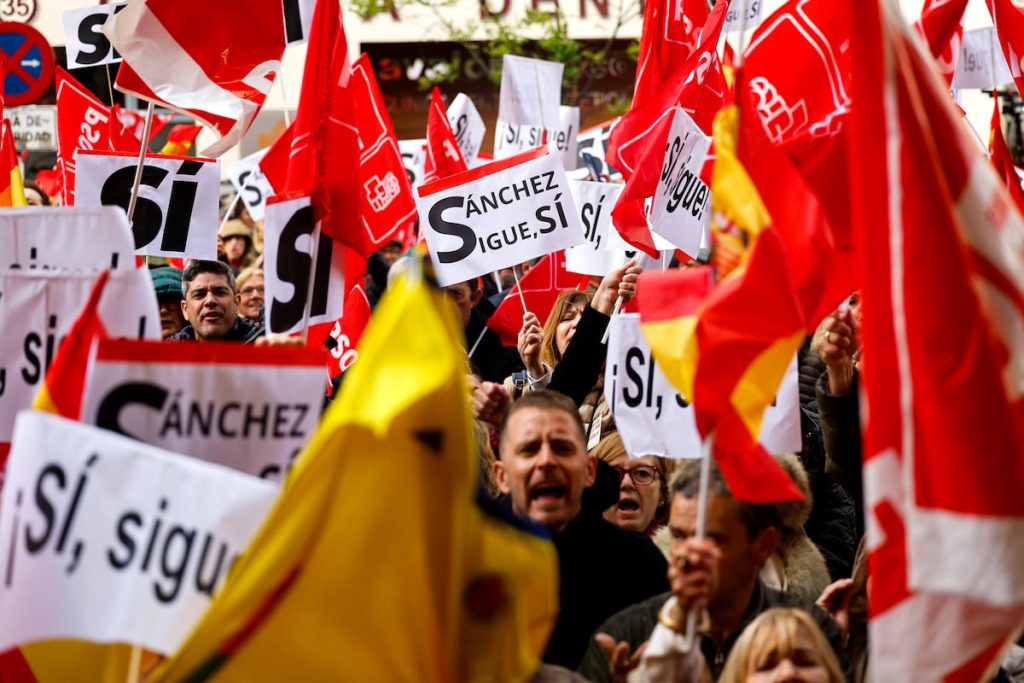The political situation in the PSOE has led to a collective catharsis among party leaders and supporters. There is a sense of anguish as Pedro Sánchez considers resigning due to pressure on his wife, Begoña Gómez. At the Federal Committee meeting, tears were shed by ministers, party officials, and supporters as they urged Sánchez to stay on. There is concern over the potential consequences of Sánchez leaving power, as the party has not prepared for the succession of a leader who has dominated since 2014. The emotional atmosphere outside the meeting contrasted with the plea inside for Sánchez to remain, with references to the party’s history, the Civil War, exile, and repression under Franco, as well as the fight against ETA.
Several leaders, including Eneko Andueza and Óscar Puente, directly appealed to Sánchez to continue for the sake of the party’s legacy and to prevent the far-right from gaining power. Andueza, who has experienced terrorism firsthand, emphasized the sacrifices of past party members and urged Sánchez to think of those who had suffered for the cause. Puente shared a personal story of his grandfather’s imprisonment during the Civil War to illustrate the importance of perseverance in the face of adversity. The meeting became a collective drama, with emotional outpourings and pleas for Sánchez to resist resigning, recognizing the potential consequences for the party and the country.
María Jesús Montero, the party’s number two and vice president, played a key role in urging Sánchez to stay, despite speculation that she could be a natural successor in the event of his resignation. Montero stressed her support for Sánchez and appealed to his family considerations, particularly addressing his wife, Begoña Gómez. She used poetry and poignant language to convey the importance of Sánchez’s leadership for the advancement of progressive values and the betterment of society. Montero, like other leaders, emphasized the significance of Sánchez’s continued leadership in addressing key issues such as employment, pension increases, gender equality, education funding, and climate change.
After an emotional display at the Federal Committee meeting, with calls for Sánchez to persevere despite the challenges, uncertainty looms over his decision. Party leaders express reluctance to consider the aftermath of a potential resignation, with focus remaining on convincing Sánchez to remain in power. The collective support and historical appeals made by party members during the meeting may influence Sánchez’s final decision. As the party marks a new chapter in its history, the looming decision on Sánchez’s future underscores the personal and political stakes involved. Amidst the emotional turmoil and uncertainty, the party stands united in its plea for Sánchez to continue leading the PSOE.


